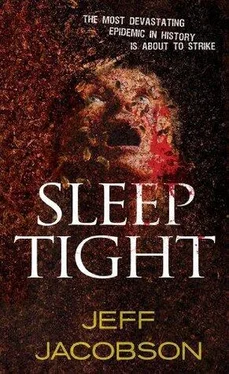10:41 PM
April 19
Dr. Reischtal found that he was unable to pray. He peered out at the night through the floor-to-ceiling windows on the top floor of the Cook County General Hospital. From dusk until dawn, the stars and sky were extinguished, blown out by the lights of the city, revealing nothing but a dull orange haze and the occasional landing lights of aircraft preparing to land as they approached O’Hare from the east. Light pollution. What an innocuous name for something so subtly sinister.
Without stars, he found the words to his Lord fell uselessly back to earth, unable to bridge the vastness of the universe. He felt trapped, smothered with the sick light. The idea that this may be a sign, that this shroud of false light could herald the end of days had occurred to him more than once.
The body in the freezer two floors down made this idea a frightening possibility.
Viktor’s trail, as far as the bats were concerned, had gone cold in Yekaterinburg. They knew he was a poor student and his father was an unemployed laborer, crippled with debts. The motive for smuggling animals was easy enough to understand. Whether he would have returned to Russia or simply stayed in the U.S. was unclear.
The bats had come from all over the world. The bodies of the bats, including the parasites, had been dissected in the laboratories at Quantico. They had recovered eleven bats, nearly all from the critically endangered list, and thirty-seven internal and external parasites that ranged over four different species, including three from Viktor’s own body.
All showed the beginning stages of the disease.
Eleven bats. One empty pouch.
And so, despite protests from his colleagues in the CDC who were more interested in saving a few pennies for their precious budgets, Dr. Reischtal had convinced the board that Viktor was just the beginning.
The virus would reappear.
And when it did, it would explode with a vengeance.
The special pathogens branch had quietly moved into the top three floors of the Cook County General Hospital, displacing patients and staff alike. It wasn’t difficult. Cook County General had one of the worst reputations of not only Chicago but the country. The big joke in Chicago was that if you were taken to General, you were lucky to leave with all your organs. A few years back, there had been a huge scandal. Several top administrators had been convicted on providing kickback bribes to ambulance companies in return for bringing accident victims to the General, even if other hospitals were closer. The place was crowded, understaffed, and most of all, underfunded.
Other hospitals may have been better suited to Dr. Reischtal’s requirements, but despite better facilities and more specialized doctors, Cook County General had one element that the others did not. Location. The only hospital located near the absolute center of the city, it filled an entire city block between Madison to the north, Wacker to the east, and Monroe to the south. To the west was the Chicago River; it had been built next to the river in the aftermath of the Great Fire in 1871.
The original building had been torn down in the late sixties, and in the same spirit that would echo some of the progressive architecture designed to serve the public throughout Chicago, the building was designed as a squat, segmented cylinder, twelve stories tall. The floors were staggered, spinning out from a central radius, providing decks shaped like stingy slices of pie, like a tight circular staircase, outlined in flowers shrubs, and small trees when the building was young. The trees died within two years, and ivy had taken over. Leafy strings hung from every surface in the summer and fall, as if the pie slices had gone rancid and mold had crept over every surface.
At first, the administrators were reluctant to simply hand over control of their hospital to the CDC. However, a large donation from the federal government had bought enthusiastic cooperation. The top floor consisted primarily of conference rooms and offices. The next two floors contained various oncology wards. The patients had been moved without explanation or warning to either Northwestern Memorial or Rush University Medical Center on the West Side.
Most of the equipment had been moved to other parts of the hospital, leaving empty, sterile rooms. Dr. Reischtal’s precise footsteps echoed though the bare halls and rooms as he paced, waiting. He could not sleep because he could not pray.
So he paced.
And waited.
The walk to the CTA Red Line subway station at Balboa only took six minutes for LaRissa Devine, from leaving her classroom seat to thrumming down the subway steps. If she was lucky, and the train was running late, she could catch the 10:37 and get home to her mom, grandmom, and three siblings and be in bed by 11:30. She needed all the sleep she could get. The manager at the El Taco Loco branch knew damn well that she was one of the few employees he could trust completely, and needed her to get there early to start the prep work.
When she wasn’t selling tacos and burritos that made a mockery out of Mexican cuisine, LaRissa was a student at Harold Washington City College, and her night class had just finished. She carried a heavy backpack; she always took every assigned book to every class. Her notebooks were filled with nearly every word out of her teachers’ mouths, and color-coded with neon highlighters. Post-it notes stuck out of the pages like some kind of medieval defensive castle architecture. She never missed a class.
She knew that some of her classmates whispered among themselves, wondering if she had some kind of obsessive-compulsive disorder. She didn’t care.
She slipped her card through the automated gate in the subway station and pushed on through. It was late, and no one was in the booth. She went down another flight of stairs. The escalator that rolled upstairs was frozen. It had been broken for almost two weeks.
She walked to the center of the station and sat on a bench, taking off her backpack and sinking gratefully against the wall. She was exhausted, but kept her eyes open. This time of night, it was better to sit where you could see anyone approaching you. The Balbo and Roosevelt subway stations were the end of the line for the whites, and the beginning of the line for a lot of blacks. This borderland effect could sometimes lead to trouble.
Anybody who said that Chicago wasn’t segregated wasn’t paying attention, or they were full of horse manure. They’d never ridden the Red Line south of Jackson, that was for sure.
Another reason her backpack was so heavy was because LaRissa carried her cousin’s U-shaped bike lock in the outside pouch. And it wasn’t just for looks. She had no problem jerking it out and using it if any fool was dumb enough to try and mess with a studious black girl. Tonight, though, was quiet. She thought for a moment about whether she could take out her biology homework, and thought tonight it might be okay. Sometimes she worried if she looked vulnerable if someone saw her with her face in a book. Since most of the shooting and problems took place when the weather turned much hotter, she thought it would be okay. She wanted to get a head start on her homework.
She did not put in her earbuds. She wanted to keep her ears wide open, and looked up from the text often to make sure she was alone. She did not, however, check under the bench.
The bugs came bubbling through the cracks where the concrete floor met the tiled wall like clotted oil escaping from a pressurized pipe. They had smelled her breath from inside the wall, and it was nearing time for another molt. Obeying an instinct older than man itself, they surged up the wall, looking for a chance to feed. Their excitement released pheromones that signaled a food source, and more bugs flooded to the surface.
Читать дальше












